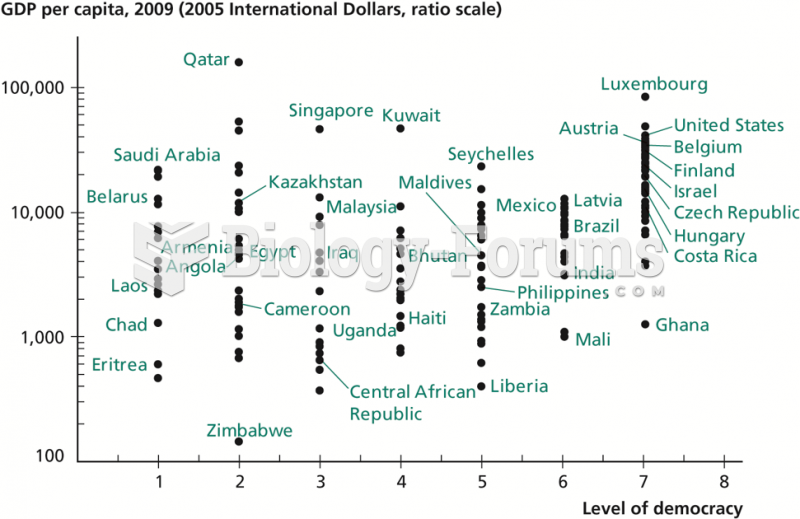|
|
|
Common abbreviations that cause medication errors include U (unit), mg (milligram), QD (every day), SC (subcutaneous), TIW (three times per week), D/C (discharge or discontinue), HS (at bedtime or "hours of sleep"), cc (cubic centimeters), and AU (each ear).
When taking monoamine oxidase inhibitors, people should avoid a variety of foods, which include alcoholic beverages, bean curd, broad (fava) bean pods, cheese, fish, ginseng, protein extracts, meat, sauerkraut, shrimp paste, soups, and yeast.
Hyperthyroidism leads to an increased rate of metabolism and affects about 1% of women but only 0.1% of men. For most people, this increased metabolic rate causes the thyroid gland to become enlarged (known as a goiter).
More than 34,000 trademarked medication names and more than 10,000 generic medication names are in use in the United States.
The word drug comes from the Dutch word droog (meaning "dry"). For centuries, most drugs came from dried plants, hence the name.
 To measure engine oil pressure, remove the oil pressure sending (sender) unit usually located near ...
To measure engine oil pressure, remove the oil pressure sending (sender) unit usually located near ...
 A typical peak-and-hold fuel-injector waveform. Most fuel injectors that measure less than 6 ohms ...
A typical peak-and-hold fuel-injector waveform. Most fuel injectors that measure less than 6 ohms ...





